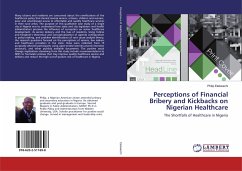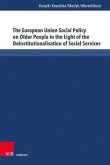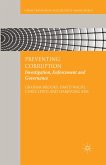Many citizens and residents are concerned about the ramifications of the healthcare policy that denied several seniors, artisans, children and women, poor and unemployed access to affordable and quality healthcare services in their rural areas. The purpose of this qualitative case study of a single city in Nigeria was to understand how state and city legislators and health administrators perceive the influence of corruption on senior healthcare development, its service delivery, and the lives of residents. Using Fatima and Kingdom's theoretical and conceptualization of agenda configuration in policy making, and problem identifications of root cause analysis theory, the research questions focused on the perceptions of seniors, law makers and healthcare providers in the state. Data were collected from 15 purposely selected participants using open-ended semi-structured interview protocols, and other publicly available documents. The positive social change implications stemming from this study include recommendations to NHIS to formulate policies that may improve quality healthcare service and delivery and reduce the high out-of-pocket cost of healthcare in Nigeria.
Hinweis: Dieser Artikel kann nur an eine deutsche Lieferadresse ausgeliefert werden.
Hinweis: Dieser Artikel kann nur an eine deutsche Lieferadresse ausgeliefert werden.








